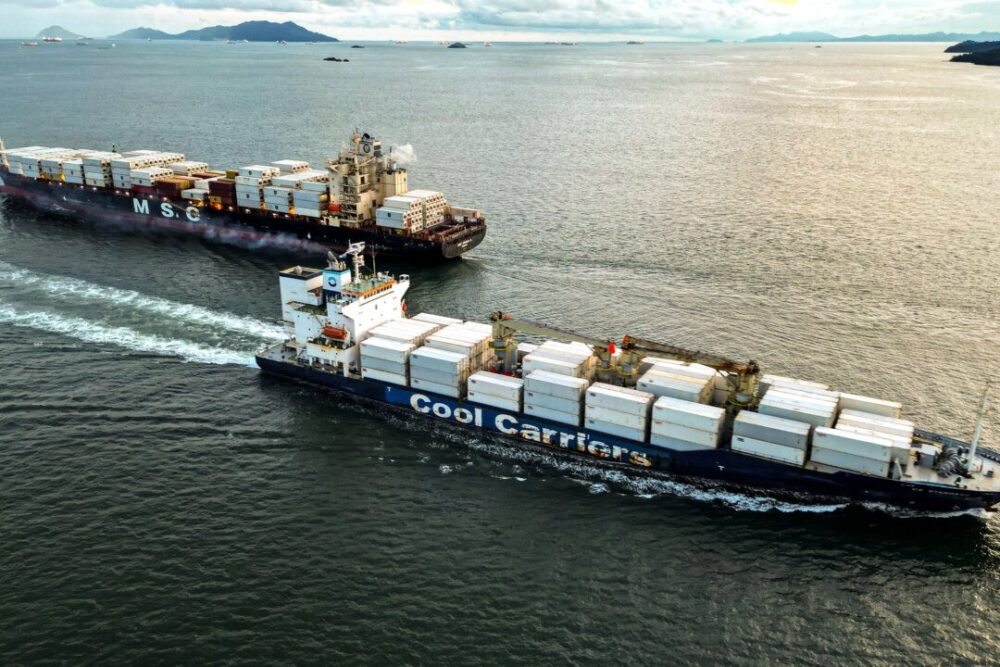
Two cargo ships pass each other during their entry and exit to the Panama Canal at the Pacific Ocean near Panama City on Oct. 6, 2024. Martin Bernetti/AFP via Getty Images
President-elect Donald Trump’s comment earlier this week about the United States potentially regaining control of the Panama Canal has brought renewed attention to communist China’s expanding influence in the Latin American country.
The Panama Canal, which opened in 1914 after 10 years of construction by the United States, was returned to Panama under a 1977 deal signed by President Jimmy Carter. In 1999, Panama took full control of the canal, which is now one of the busiest shipping lanes in the world, connecting the Pacific Ocean and the Caribbean Sea.
“It was solely for Panama to manage, not China, or anyone else,” Trump wrote.
If Panama cannot guarantee “the secure, efficient, and reliable operation” of the waterway, the United States “will demand that the Panama Canal be returned to us, in full, and without question,” he added.
Panamanian President José Raúl Mulino responded to Trump’s comments by saying the canal is not controlled by China, Europe, the United States, or any power other than his country.
Trump responded to Mulino’s dismissal on Truth Social the same day, writing, “We’ll see about that!”
‘A Different Way Forward’
The 1977 deal consists of two treaties: the Treaty Concerning the Permanent Neutrality and Operation of the Panama Canal, also known as the Neutrality Treaty, and the Panama Canal Treaty.
“It is after all no secret that China controls ports on either end of the canal,” Sadler said.
“This is why I liked the choice of [Marco] Rubio as Secretary of State,” he stated.
“We must continue to make clear that Panama is an important partner & warn against CCP attempts to establish a foothold in our region,” he wrote.
CCP–Panama Ties
The CCP began to gain a foothold in Panama even before the U.S.-built canal was fully handed over to Panamanian control on Dec. 31, 1999.
Cortizo’s predecessor, Juan Carlos Varela, who served as president from 2014 to 2019, made several decisions to strengthen the country’s ties with the Chinese regime.
A consortium consisting of Chinese state-owned companies was awarded a $1.42 billion contract under the BRI to build a fourth bridge over the Panama Canal in 2018, according to China’s state-run media.
When Varela visited China in 2017, the former Panamanian president also met with Huawei’s founder, Ren Zhengfei, according to the company’s website.
In April, the state-owned Assets Supervision and Administration Commission of China’s State Council reported on its website that Panama’s Amador Cruise Terminal had recently begun operations.
The terminal, built by China Harbour Engineering Co. on Perico Island at the Pacific entrance of the canal, could become a “vital hub for cruise ship rotation and passenger transit in Central and South America,” the commission said.
Panama-based attorney Alonso Illueca, a specialist in international law, wrote that China’s control over the Balboa and Cristóbal ports “is only part of the influence exerted by a disruptive actor.”
Illueca said Panama should recognize its strategic interests, reassess its relationship with Beijing, and realize that the CCP “is an actor that tends to take advantage of and exploit the strategic weaknesses of other nations.”